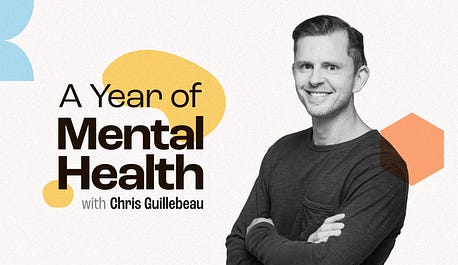Many of us grew up on a steady diet of sitcoms where every problem gets resolved by the end of each episode. A misunderstanding leads to conflict, hijinks ensue, and then everyone hugs it out before the credits roll. Real life rarely works that way. Lately I've been watching a Swedish show called Bonus Family, which follows two sets of divorced parents, their new partners, and various combinations of children as they try to make life work. There are moments of happiness and joy, but there's also a lot of ... life. Problems don't get solved in 44 minutes or less. Sometimes they don't get solved at all. Weirdly, the state of conflict actually feels relieving to watch. It feels true in a way that most TV shows don't, especially American ones. (Even most of our "serious" shows tend to wrap things up neatly by the end of each season.) The truth is that much of life exists in an unresolved state. You have an ongoing tension with an in-law. Your teenager is going through a phase that might last for years. The career transition you're attempting is taking way longer than expected. Your mom still pushes your buttons, just like she did when you were fourteen. Some problems don't get solved—they just change form. Others fade away on their own schedule, not yours. And a few stick around forever, requiring a sort of uneasy ceasefire rather than a decisive victory. The most challenging part isn't the situation itself—it's the story we tell ourselves about it. We think if we were just smarter, worked harder, or had better boundaries, surely we could find the "right" solution. After all, that's what we've been trained to expect: identify problem, apply solution, achieve resolution. But what if that's not how it works? What if your mom will always be a little too critical, your partner will never be quite as organized as you'd like, and your work will always involve some degree of uncertainty? What if instead of trying to solve these "problems," you accepted them as ongoing conditions? This isn't about giving up. It's about distinguishing between what needs to be fixed and what simply needs to be managed. It's about recognizing that some tensions in life are chronic rather than acute. When you accept that some situations will remain complicated, you can stop feeling like you're doing something wrong because you haven't fixed everything yet. You can also redirect that energy toward something more useful: learning to live well amid the complexity. This might mean:
Life isn't about solving every problem. It's about becoming resilient enough to thrive even when some problems persist. It's about finding moments of joy and connection not after the challenges end, but right in the middle. Just like those families in the Swedish TV show, we're all just figuring it out as we go along. "Unresolved" doesn't equal "failed." See also:You’re currently a free subscriber to 🌻 A Year of Mental Health. For the full experience, consider upgrading! |
Monday, December 9, 2024
The Art of Living with Unresolved Problems
Subscribe to:
Post Comments (Atom)
Bicam committee keeps slashed budget for VP Sara
No go, no way: In the end, the bicameral conference committee backed the House move to trim VP Sara Duterte's office budget next year by...

-
insidecroydon posted: " Become a Patron! What's on inside Croydon: Click here for the latest events listing...




No comments:
Post a Comment